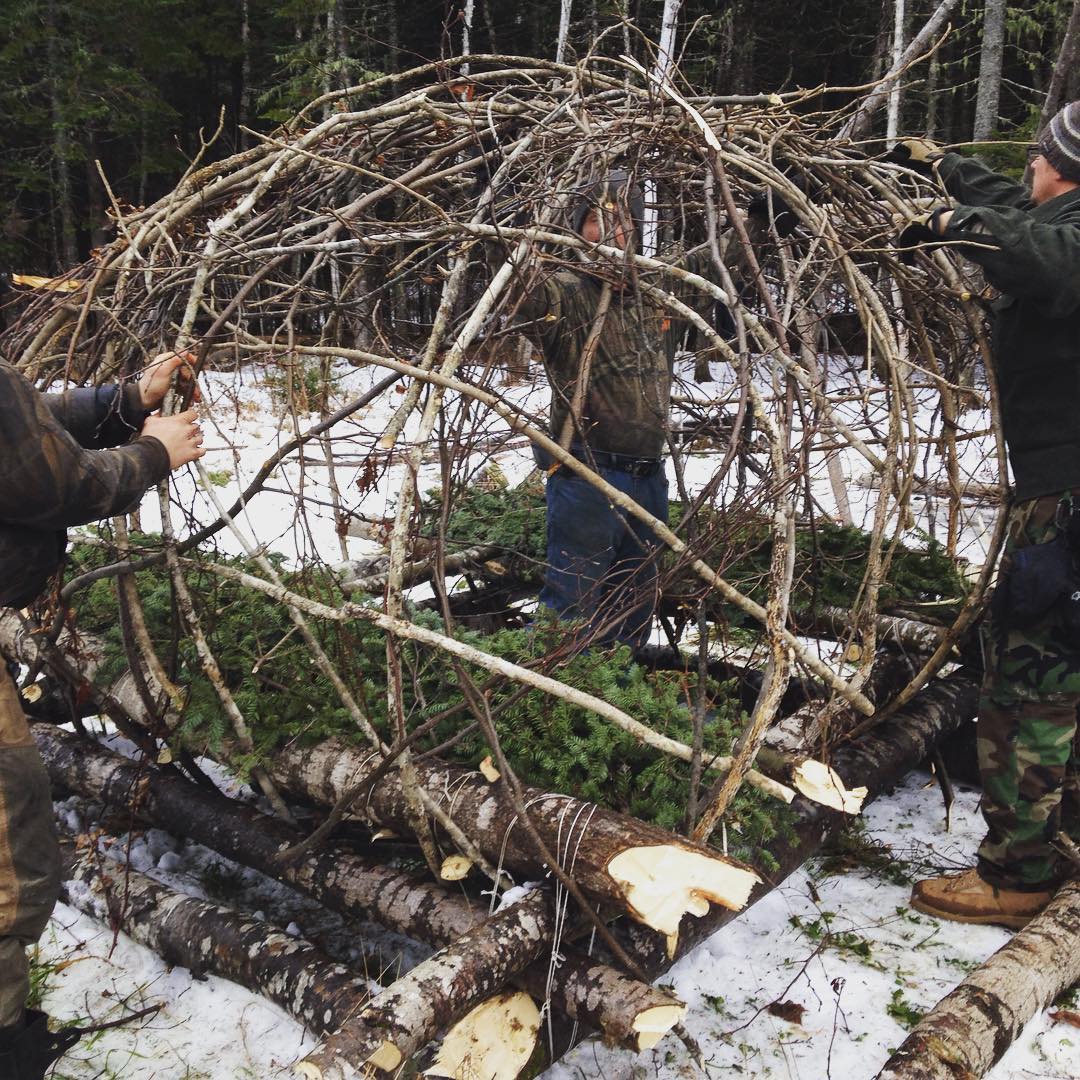7 Elements Of Jack Mountain Programs
Skill – Journey – Craft – Nature – Culture – Sustainability – Self
Drawing on the philosophies of bushcraft we’ve developed over almost 20-years of field courses, the traditions of Maine Guides that go back generations, the Cree concept of miyupimaatisiium (translated as “being alive well”) and the Scandinavian idea of friluftsliv (translated as “open air life”), the following seven elements comprise the components of our semester and yearlong programs.
1. Skill – Learn by doing. Too much of modern education is theoretical, abstract and sedentary, where the head is engaged but the hands are not. We depart from that norm with a tangible, hands-on approach that emphasizes being an active participant in the natural world and in life.
2. Journey – Travel through remote parts of the north woods alongside professional guides, directly experiencing what you’re learning. Live in the bush for extended lengths of time where the focus isn’t simply how-to, but living with efficiency and grace that come with extensive experience.
3. Craft – Explore the world with your hands. Build useful items from materials gathered on the landscape. Man needs tools to live. Making these necessary items from materials gathered from the landscape bonds you to the land and makes you self-reliant.
4. Nature – Learn the language of the world around you. Study the weather, edible/medicinal plants, fungi, mammals and their tracks, birds, fish, mollusks, insects, amphibians, reptiles, rocks, minerals, soil, water, ice, celestial bodies and ecology.
5. Culture – Culture is the human element, or soft skills, which make or break an expedition. Learn management and leadership skills crucial to the professional guide and outdoor leader, as well as how to instruct effectively.
6. Sustainability – Life is different with minimal infrastructure. Learn the techniques of living a simple, low-tech life with minimal inputs by living them every day. Compost everything that will rot, grow food, reuse and repurpose resources, care for the land and leave it healthier for future generations.
7. Self – Learn your specific needs and boundaries. In a world of generalizations, it’s important to know exactly what you need to function well. How much sleep do you need to function? How much water? How much of a bed do you need to make in order to sleep well? This is about intimately knowing yourself and what you need to do to keep your body alive and well. The only way to learn it is to live it.








